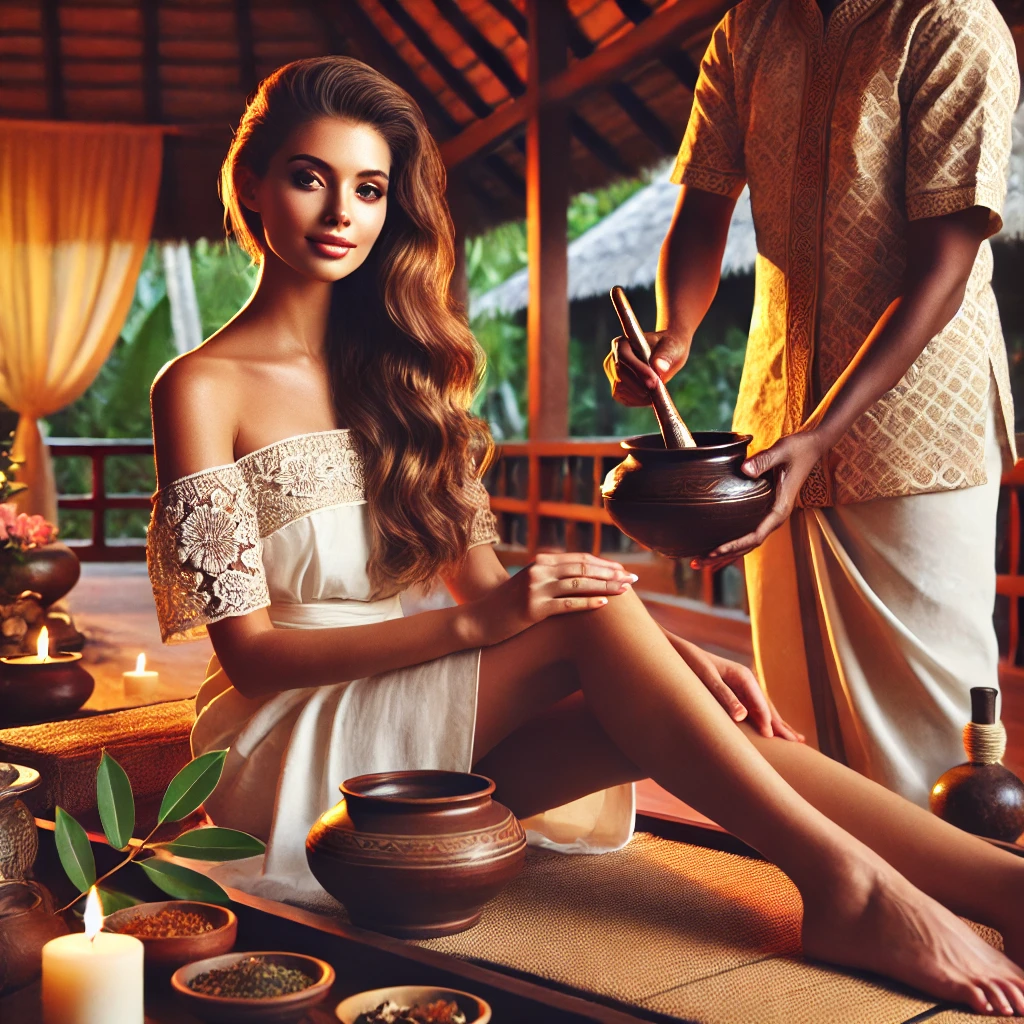Sri Lanka’s rich tradition of Ayurvedic medicine dates back over 3,000 years, deeply rooted in the island’s cultural and spiritual heritage. Ayurveda, meaning “the science of life,” is a holistic healing system that focuses on balancing the body, mind, and spirit through natural remedies, herbal treatments, and lifestyle practices. Unlike Western medicine, which often treats symptoms, Ayurveda seeks to address the root cause of illness, restoring harmony within the body through personalized therapies.
Sri Lankan Ayurveda is influenced by a combination of ancient Indian Ayurveda, indigenous Hela Wedakama (Sri Lankan traditional medicine), and Siddha medicine, creating a unique healing system. Ancient kings played a crucial role in preserving and developing Ayurvedic knowledge, establishing herbal gardens, hospitals, and medical texts that continue to guide practitioners today. The ruins of Mihintale, dating back to the 3rd century BCE, showcase one of the world’s oldest hospitals, highlighting the deep historical roots of Ayurveda in Sri Lanka.
One of the fundamental principles of Ayurveda is the concept of the Tridosha—Vata (air and ether), Pitta (fire and water), and Kapha (earth and water). Each individual has a unique balance of these three doshas, which determine their physical and mental characteristics. When the doshas become imbalanced due to poor diet, stress, or environmental factors, illness occurs. Ayurvedic doctors in Sri Lanka diagnose imbalances through pulse reading, tongue examination, and observation of symptoms before prescribing natural treatments tailored to the patient’s constitution.
Herbal medicine plays a central role in Sri Lankan Ayurveda, utilizing the island’s abundant medicinal plants. Over 200 herbs, roots, and spices are used in preparing Ayurvedic remedies, many of which are grown in traditional herbal gardens or collected from forests. Commonly used herbs include gotu kola (for brain function and skin health), neem (for detoxification and skin conditions), aralu (for digestion and liver health), ashwagandha (for stress relief and vitality), and turmeric (for inflammation and immune support). These herbs are prepared in various forms, including decoctions, powders, oils, and pastes, often combined to enhance their healing effects.
One of the most sought-after treatments in Sri Lankan Ayurveda is Panchakarma, a five-step detoxification process designed to cleanse the body of toxins. This therapy includes oil massages, herbal steam baths, nasal cleansing, purgation, and enemas, all aimed at restoring balance and rejuvenating the body. Panchakarma is particularly beneficial for chronic illnesses, stress-related disorders, and overall vitality, making it a popular choice for both locals and international wellness seekers.
Sri Lankan Ayurveda also places great emphasis on oil therapies, particularly Shirodhara, where warm herbal oil is poured continuously over the forehead to calm the nervous system and promote deep relaxation. Abhyanga, a full-body oil massage, helps improve circulation, relieve muscle tension, and nourish the skin. These treatments are commonly offered in Ayurvedic wellness centers and resorts, providing visitors with a rejuvenating experience in tranquil natural settings.
Diet is another cornerstone of Ayurvedic healing in Sri Lanka. Ayurvedic nutrition follows the principle of eating according to one’s dosha type and emphasizes fresh, organic, and seasonal foods. Traditional Ayurvedic meals include herbal porridges (kenda), lentils, coconut-based curries, and medicinal herbal teas, which aid digestion and enhance vitality. Spices like cinnamon, coriander, and black pepper are not only used for flavor but also for their medicinal properties.
Traditional Sri Lankan Ayurveda is deeply connected to the spiritual and mental aspects of well-being. Meditation, yoga, and breathing exercises (pranayama) are often integrated into treatments to enhance mental clarity and emotional balance. Many Ayurvedic practitioners recommend spiritual practices such as chanting mantras or engaging in mindfulness meditation to promote inner peace alongside physical healing.
Ayurvedic healing is widely practiced across Sri Lanka, from small village clinics to luxurious Ayurvedic resorts. The southern coastal town of Bentota, the ancient city of Anuradhapura, and the central hills of Kandy and Ella are known for their renowned Ayurvedic centers. Some Ayurvedic hospitals and research institutions, such as the Bandaranaike Memorial Ayurvedic Research Institute, continue to preserve traditional knowledge while integrating modern scientific research.
Unlike modern pharmaceutical medicine, which often comes with side effects, Ayurvedic treatments are gentle, natural, and designed to support long-term health. However, Ayurveda is not just about treating diseases—it is a way of life. Many Sri Lankans incorporate Ayurvedic principles into their daily routines, using medicinal herbs, following seasonal diets, and practicing self-care rituals passed down through generations.
Sri Lanka remains a global hub for Ayurvedic healing, attracting wellness seekers from around the world. Whether seeking treatment for a chronic illness, relaxation through oil therapies, or a complete lifestyle transformation, Ayurveda in Sri Lanka offers a holistic, time-tested approach to health and well-being. The island’s ancient wisdom, combined with its natural beauty and warm hospitality, makes it an ideal destination for those looking to embrace a balanced and rejuvenated life.
